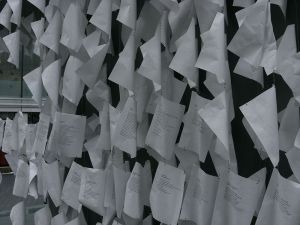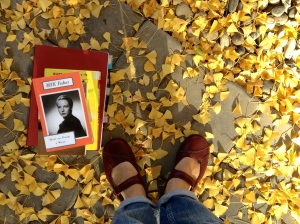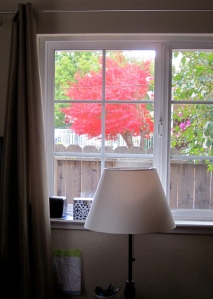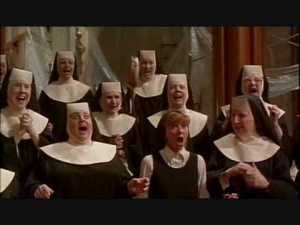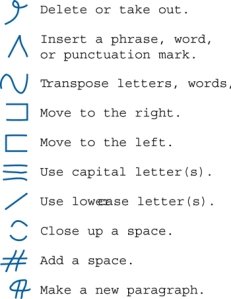
Note to self: the delete symbol comes first.
Happy Friday. It is another “hawt” one here in the Peninsula Town. I’m always grateful for the cold, deep, indifferent Pacific, which helps cool things down overnight at least.
Last week I was busy with school deadlines and I was amazed to discover how happy I was about it. Poems and essays and things to say about them. Questions to ask of them. Close readings to make of them. It reminded me of the time during my first graduate program twenty years ago, when I could spend a whole day in the library reading and writing, while feeling it must only have been an hour. Back then, no school pick up, no hungry bellies about, nothing to call me away until I noticed the light was shifting, that it was getting dark, that the ranks of the library dwellers and thinned considerably since I last looked up, that I should probably walk home to my tiny, roach-infested apartment and have something to eat.
It’s good to have things we love to get lost in. Even if our lostness doesn’t last as long as it might have once, or might again someday.
This week I got lost in “Omission,” a piece by John McPhee in The New Yorker (Digression to say: Please tell me I’m not the only one who gets stressed out when The New Yorker arrives without fail every week and I am already behind on last week’s The New Yorker, and how am I ever going to keep up with The New Yorker?) McPhee is what I think we could call a nature writer; at least, his subject matter is often the natural world. But in recent years he’s been writing pieces for The New Yorker on writing. Without fail, I love them and learn from them. Here are some juicy bits from “Omission”:
“Writing is selection. Just to start a piece of writing you have to choose one word and only one from more than a million in the language. Now keep going. What is your next word?”
“At base you have only one criterion: If something interests you, it goes in—if not, it stays out. That’s a crude way to assess things, but it’s all you’ve got. Forget market research. Never market-research your writing. Write on subjects in which you have enough interest on your own to see you through all the stops, starts, hesitations, and other impediments along the way.”
“Ideally a piece of writing should grow to whatever length is sustained by its selected material—that much and no more.”
He goes on to describe, amongst other things, the process of “greening” that took place at Time magazine when he worked there. After a piece of writing was finished and approved by editors, the piece would go to Makeup (which I think we can think of as the layout department). It would come back to the writer with directions to “Green 5” or “Green 8″—which meant to underline the text in green pencil which could be cut in order to reduce the piece by the number of lines in the instructions so that it would fit in the final, published version of the magazine.
If this is not a perfect revision exercise, I don’t know what is. I’m planning on writing “Green (insert # here)” on little pieces of paper and putting them in a drawer, then pulling one out each time I work on revision. Green 4! Bye, bye, darlings. Goodbye favorite image that might even be good but not crucial. So long, last stanza.
In poetry, one form of omission is what we sometimes call “subverting the narrative.” In subverting the narrative, the poet makes the decision not to tell the story behind the poem, or at least not to tell it like a story. Here’s a Marvin Bell poem that I feel makes masterful use of omission in this way:
*
“Gradually, It Occurs to Us…” by Marvin Bell
Gradually, it occurs to us
that none of it was necessary—
not the heavy proclaiming
the sweat and length of our love
when, together, we thought it the end;
nor the care we gave your dress,
smoothing it as we would the sky;
nor the inevitable envelope of This-
is-the-time-we-always-knew-would-come,
and-goodbye. All that was ever needed
was all we had to offer,
and we have had it all. I have your absence.
And have left myself inside you.
Now when you come back to me,
or I to you, don’t give it a thought.
This time, when first we fall into bed,
we won’t know who we are, or where,
or what is going to happen to us.
Time is memory. We have the time.
–from Stars Which See, Stars Which Do Not See (and sorry to link to the Devil himself)
*
You can read the whole John McPhee article here. Happy Friday, happy weekend, and thanks for reading.



